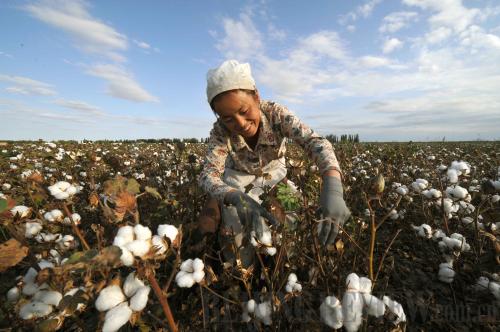|
 |
|
(ZHAO GE) |
Solar Term 17: Cold Dew (Han Lu)
Gregorian date: October 8 or 9
Lunar date: Early in the 9th month
By this point on the calendar, temperatures are low and decreasing sharply. Dew droplets become icy cold, hence the name han lu, or "cold dew."
In most parts of China, autumn harvest and autumn sowing begin in this period. During han lu, farmers begin collecting sweet potatoes, and by the end of the month most are harvested, processed and preserved.
In south China, han lu marks the final period of managing hybrid rice crops, when the application of pesticides is most important. The harvest of hybrid rice and glutinous rice begins as does the harvest of dry field crops such as corn and millet.
The Double Ninth Festival is celebrated on the ninth day of the ninth month of the Chinese lunar calendar. According to the Chinese classic The Book of Changes, the number "nine" was thought to be yang, meaning masculine or positive, while chong in Chinese means "double," resulting in its other name, Chongyang Festival.
The custom of ascending heights has been passed down since ancient times, and today people still swarm to mountains on this day to honor "Height Ascending Festival" (an additional name for the festival).
The festival is also a time when chrysanthemums bloom. People celebrate by enjoying the flourishing chrysanthemum, drinking chrysanthemum wine and eating chrysanthemum cakes. In ancient times people believed that chrysanthemum, apart from detoxification, could drive away evil spirits.
"Double ninth" is pronounced "jiu jiu." Because the Chinese term for "forever" (longevity) has the same pronunciation, this day has become a special day for people to pay their respects to the elderly. Hence it gets another name: Seniors' Day.
Weather in late autumn is cold and arid, and it is important to keep warm and prevent dryness. The body needs extra fluids to counteract the dry air. Chinese custom dictates that porridge for breakfast and soup for dinner made with ingredients such as lily bulb, white fungus and lotus root is best.
Solar Term 18: Frost's Descent (Shuang Jiang)
Gregorian date: October 23 or 24
Lunar date: Middle of the 9th month
During this period, the weather becomes colder in most parts of China, especially in the middle and lower reaches of the Yellow River. Moisture condenses on tree leaves and branches or on the ground forming frost, hence the name shuang jiang, or "frost's descent."
In north China, autumn harvest is almost at an end, while in the south, it is busy season for fall harvest and sowing. Shuang jiang is marked by the planting of wheat in dry fields. Winter vegetables like mustard greens and cabbages are also planted during this period.
In south China, most corn has yet to ripen. If frost occurs, there will be a poor harvest. As a local proverb explains, "If frost does not descend on shuang jiang, there will be 18 more days of warmth."
Like spring, autumn is also a season of change. Diseases are prone to surfacing at this time. Taking care of your health during this period is important. It's best to eat all cooked foods, especially root vegetables, winter squash, barley, rice, and spices like garlic, ginger and black pepper, which may help to support lung functions and alleviate dampness.
For a more robust body, it is advisable to do yogic breathing exercises regularly as they strengthen the lungs and protect against respiratory problems. If windows are kept open at night, make sure they aren't near the bed – best not to wake up with a stiff neck and shoulders.
|